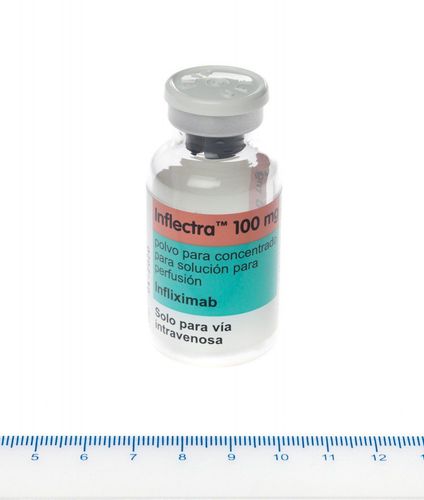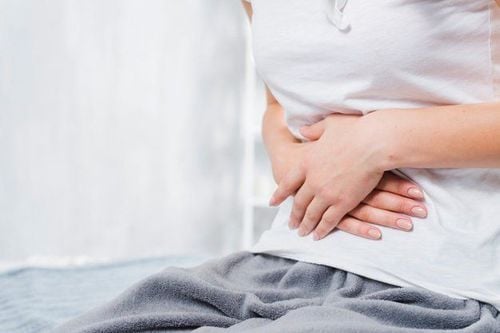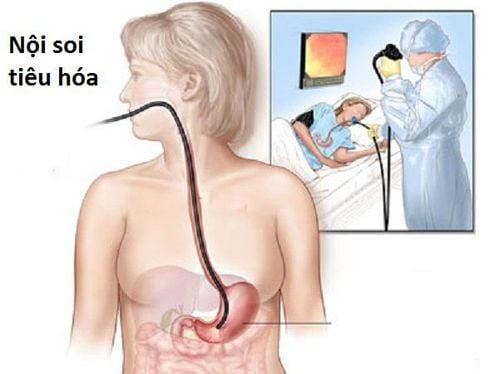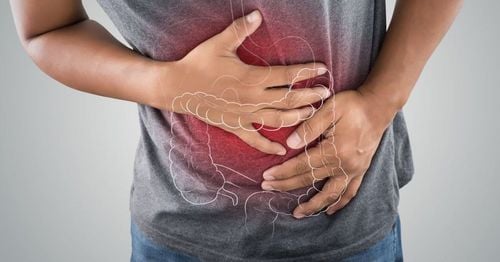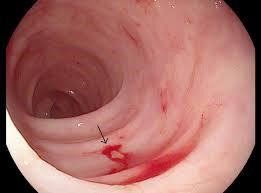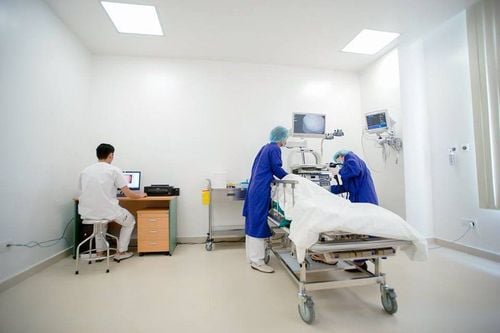This is an automatically translated article.
Unscientific eating and drinking habits are the main reason why many people today have ulcerative colitis. Ulcerative colitis has many different manifestations, the level of pain is mild or severe depending on the location of the ulcer. So what are the signs of ulcerative colitis? The article will help readers have more information about the disease as well as the diagnosis and use of drugs in the treatment of bleeding ulcerative colitis.
1. Where is the colon located? Functions of the colon
The colon also known as the large intestine is the last part of the digestive tract. The colon has the function of receiving and excreting undigested food (faeces).
2. What is ulcerative colitis? What causes ulcerative colitis bleeding?
Hemorrhagic ulcerative colitis is a chronic inflammatory, autoimmune disease. The disease causes ulceration and bleeding in the colorectal area, causing diffuse damage to the mucosa and submucosa, located mainly in the rectum and gradually decreasing to the right colon.
The cause of ulcerative colitis is still unknown, but according to research, the disease is related to the immune response process. Bleeding ulcerative colitis and Crohn's disease are collectively known as Inflammatory Bowel Disease (IBD). The disease may initially be confined to the rectum, then gradually spread inward, causing damage to the entire colon, sometimes even to part of the terminal small intestine.
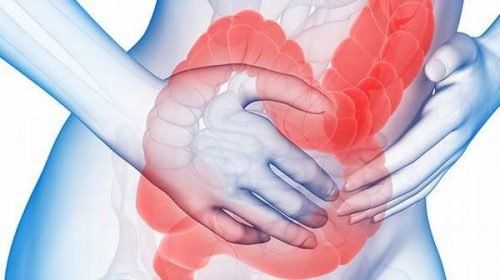
Viêm loét đại trực tràng chảy máu là bệnh viêm mạn tính có tính tự miễn
3. Symptoms and signs of ulcerative colitis?
Clinical signs:
Signs the patient can notice in the course of daily living:
Abdominal pain, bowel discomfort, discomfort, abdominal fullness, abdominal distension Constantly changing bowel movements causing Stool disorder: Loose or constipated stools, bloody (bright red or dark) mucus several times a day, red stools. Fever is rarely a severe, complicated form. Smaller than normal stools Extra-digestive symptoms: arthralgia, uveitis, sclerosing cholangitis. Body as a whole: unexplained weight loss, anemia, sometimes edema due to malnutrition Body fatigue Paraclinical signs:
When performing colonoscopy, the extent of damage is seen:
Ulcerative proctitis: lesions only in the rectum Ulcerative colitis and sigmoid colon: lesions from the rectum to the middle of the sigmoid colon. Left ulcerative colitis: lesions from the rectum up to the splenic flexure colon. Right ulcerative colitis: lesions from the rectum up to the hepatic flexure colon. Generalized ulcerative colitis. After endoscopy, a piece of inflamed cells is taken for testing (histopathology). This is an important evaluation criterion, the final conclusion to know the extent of ulcerative colitis bleeding. The results show that:
Injury only in the mucosa, submucosa, not in the muscle layer. The epithelium is sloughed and uneven. Abnormal glandular structure: shortening, loss of parallelism, branching, decreased number of mucin-depleted goblet cells. Plasma cells penetrate down to the stroma. Cavity abscess. Mucosal hemorrhage, congested blood vessels.

Xét nghiệm mô tế bào bị viêm là tiêu chuẩn đánh giá quan trọng để xác định tình trạng bệnh
Do further tests and find:
Anemia in varying degrees depending on whether the condition occurs early or long If not examined and treated promptly, bleeding ulcerative colitis causes other dangerous complications:
Dilated colon: common in severe ulcerative colitis, inflammation of the entire colon. Dilated colon mainly dilated transverse colon, d > 6cm. Urticaria is a medical emergency because of the risk of colonic perforation. Colon perforation: peritonitis. is a surgical emergency. Gastrointestinal bleeding Oncological follow-up CEA, CA 19.9.
4. Treatment of bleeding ulcerative colitis
For cases that have never been treated: Start using 1 drug, then assess the response based on the patient's clinical symptoms after 10-15 days;
For those who have been or are being treated with a severe exacerbation: It is necessary to restart treatment with 2 drugs being treated and combine with 1 other drug;
The case has been treated and stopped treatment long ago: Initial treatment is the same as the case that has never been treated, it is advisable to start treatment with another drug;
In case of minimal minor damage in the rectum and sigmoid colon, it is recommended to combine local treatment with suppositories and enemas;

Viêm loét đại trực tràng chảy máu có thể được điều trị bằng việc sử dụng thuốc
5. Drugs to treat bleeding ulcerative colitis
For the treatment of patients with mild bleeding ulcerative colitis (rectum lesions), drug therapy:
5- ASA orally: pentasa 5 - ASA topical: anal cyst. Can be combined with topical steroids, suppositories or enemas or powders: 100mg x 1-2 times/day. Oral antibiotics: ciprofloxacin or metronidazol Treatment of patients with moderate bleeding ulcerative colitis (lesions in the left colon)
5 - Oral ASA: pentasa n 5 - Topical ASA: enema solution or powder . Hydrocortisone solution 100mg enemas every morning Oral antibiotics: ciprofloxacin or metronidazole If unresponsive: combine oral corticosteroids If still unresponsive: methylprednisolone Treat ulcerative colitis with moderate or severe bleeding (colorectal lesions) Right colon or whole colon):
5- Oral ASA: oral pentasa Prednisolone If no response: IV high-dose corticosteroids, methylprednisolone 16-20mg/8h, hydrocortisone 100mg/8h (IV). If clinical improvement after 7-10 days reduce dose gradually every 5mg/week and completely. if not responding to combination immunosuppressive drugs. Antibiotics: ciprofloxacin or metronidazole
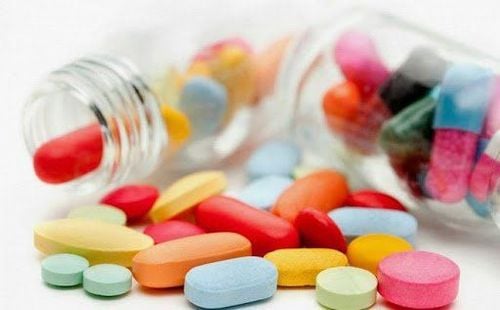
Tùy thuộc vào mức độ viêm loét đại trực tràng chảy máu để sử dụng thuốc điều trị phù hợp
6. Note during the treatment of bleeding ulcerative colitis
Patients need to use drugs according to the instructions and instructions of the doctor
Develop a scientific diet, adhere to a nutritious diet, choose soft, easy to digest foods, low in nutrients fiber such as rice paste, porridge, lean meat, fish, soy milk, note to avoid eating raw vegetables, corn...
Abstain from greasy foods, raw vegetables, alcoholic beverages, hot spicy foods.
Limit excessive stress that aggravates the disease, so relax, relax your mind, do not use stimulants, drink enough water. These are also measures to reduce the risk of bleeding ulcerative colitis in healthy people.
Up to now, there is no specific medicine to completely cure bleeding ulcerative colitis. Only treatment can help limit the disease, reduce pain for the patient. Therefore, in addition to the treatment prescribed by the doctor, the patient needs to follow a good diet for the digestive system, avoid stress and need to have regular health checkups.
As soon as there are symptoms, it is necessary to go to the doctor soon for timely treatment when the damage has not spread.
Please dial HOTLINE for more information or register for an appointment HERE. Download MyVinmec app to make appointments faster and to manage your bookings easily.




